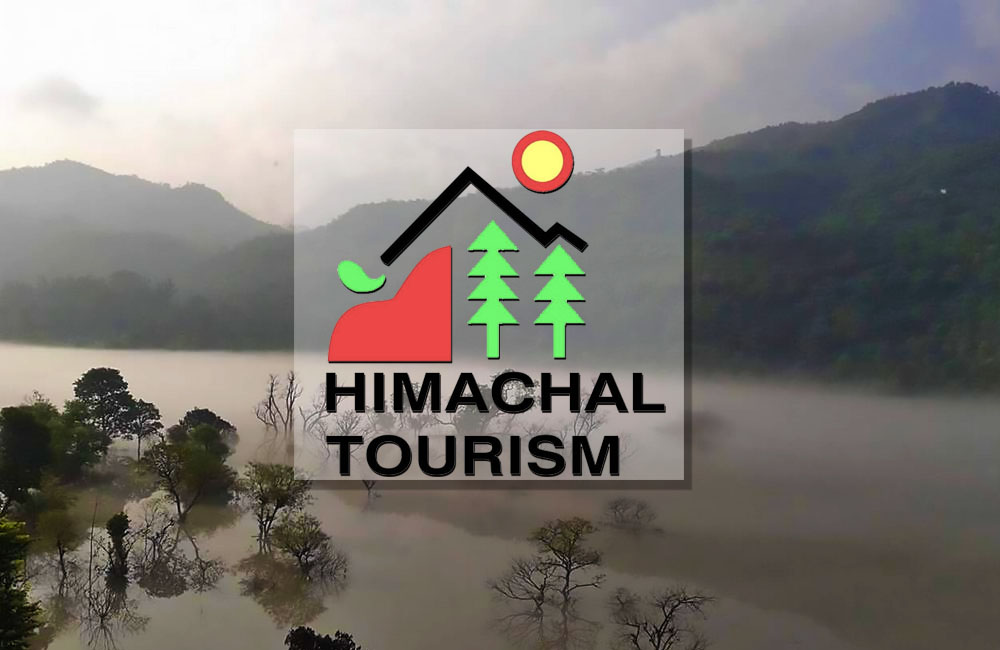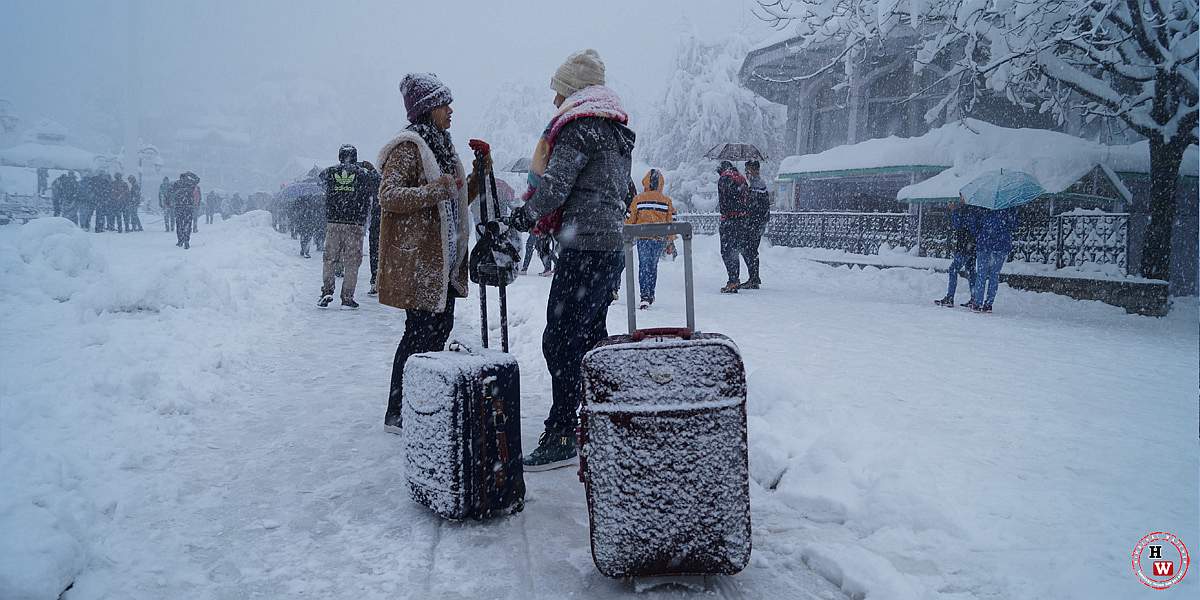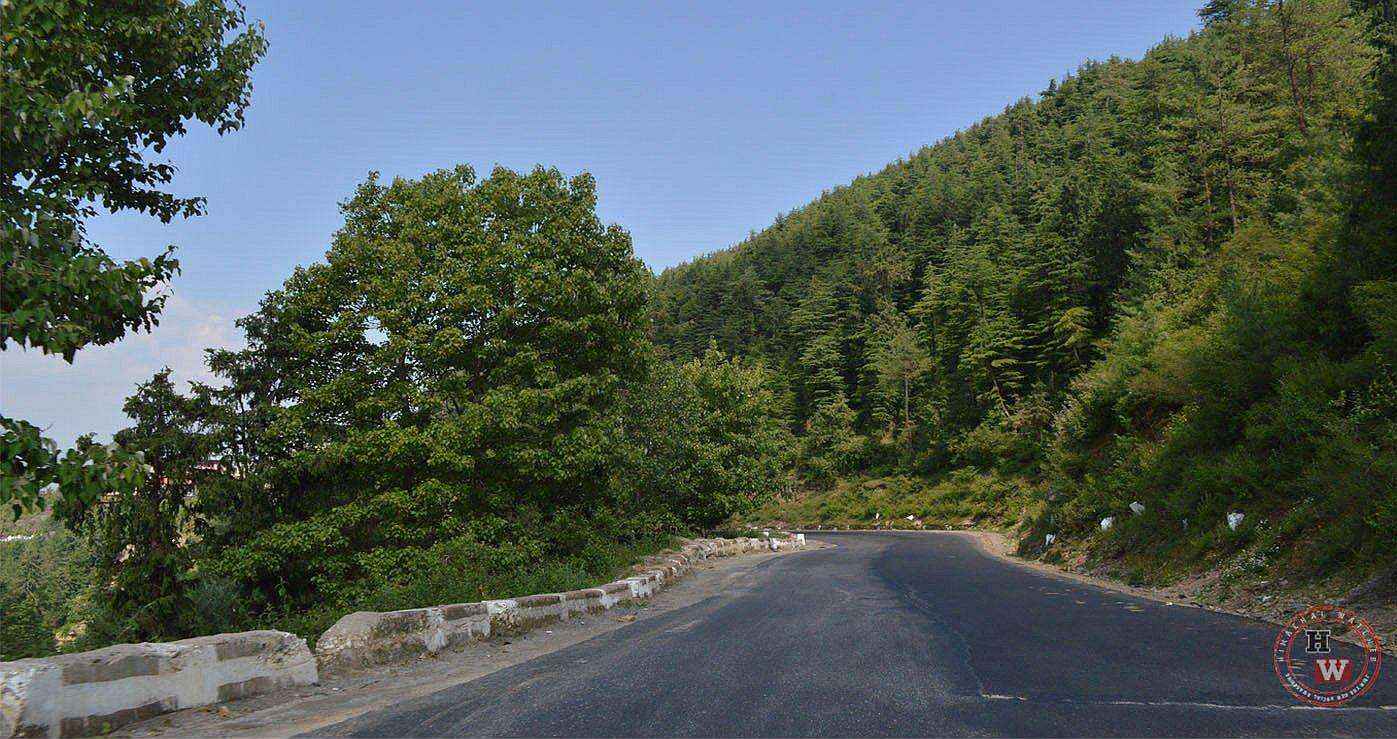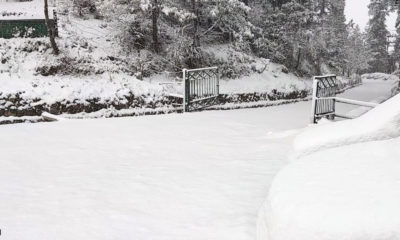ECO-Tourism
HP Tourism to Cook 1100 kg ‘Khichari’ at Tattapani to Promote Tourism

Shimla-Himachal Pradesh Tourism Department will organise ‘Tourism Festival’ on the occasion of Makar Sakranti on January 14, 2020, at Tattapani. It would be organised in collaboration with district Mandi Administration. This was disclosed by Director Tourism Department Yunus while presiding a meeting today.
He said that the objective of organizing this tourism festival is to promote Tattapani as a tourist destination. He said that for first-time tourism festival was being organised at Tattapani to make it tourism destination for Indian and Foreign tourists.
He informed that during this event, Water Sports, Satluj Aarti and cultural programmes would also be organised. On this occasion, 1100 kilogram’ Khichari’ would also be cooked and it would be especially cooked in a single utensil, he added.
This is for the first time in Himachal Pradesh that Khichari would be cooked in such large quantity and will be served to about 12,000 to 15,000 people. Special buses would also be plied by the Transport Department to reach Tattapani Tourism Festival from Mandi and Shimla on Makar Sakranti.
SDM Karsog, District Tourism Officer Mandi, representatives of NTPC, HPTDC, Language, Art and Culture Department and Tattapani Panchayat participated in the meeting among others.
ECO-Tourism
Himachal to Set up 100 Swachhta Cafés Worth Rs. 10 Crore to Promote Traditional Cuisine, Collect Tonnes of Single-Use Plastic

Shimla-Swachhta cafe would be set up in Himachal Pradesh with an estimated cost of around Rs. 10 crores by the year 2023. The State Government would set up around 100 such cafes. Ten such “Swachhta Café” would be set up at important locations of the state with an estimated cost of rupees one crore with a target to collect 25 tonnes of single-use plastic items from different parts of the state by end of this financial year.
It was informed by Rural Development and Panchayati Raj Minister Virender Kanwar recently.
Under this “Swachta Café” program, plastic waste will be purchased from the ragpickers, individuals collecting waste from households and urban local bodies at Rs. 75 per kilogram in exchange for food or other eatable items to motivate the ragpickers and individuals to keep their surroundings clean.
The Swachhta cafe will be constructed under “Village Haat Scheme” where women will be facilitated to sell medicinal plants, such as giloye, peppermint, powder of neem leaves and homemade pickles, murabba, wheat flour, pulses, spices and vegetable vat reasonable prices.
The women running the Swachhta Cafe will be given training in the hospitality sector to enable them to cook popular traditional cuisine to maintain original flavour and taste of the dishes. Around 100 such women will be trained by the hospitality experts during the current financial year, he informed.
He further informed that a target has been fixed to train around five thousand women belonging to self-help groups in the next three years in the hospitality sector to run these cafes.
The first Swachhta Café was inaugurated at Gram Panchayat Radiali in Nalagarh area in Solan, which is to be run by women self-help groups and another cafe would be opened at Naggar in Kullu Districts. Under the scheme, if a person brings more plastic waste then he can use the surplus money for dining in next time in the cafe.
Minister said that the programme aims that villages are made completely free of single-use plastic in coming years and the entire state will be covered under the scheme in a phased manner in coming years.
ECO-Tourism
ADB funds Rs. 1900 crore tourism project for Himachal

The design of the project is based on the detailed baseline data, a study conducted of 324 sites in 12 districts of the state, suggestions obtained from about 90,000 tourists.
Shimla: The Department of Economic Affairs, Ministry of Finance, Government of India has approved a tourism infrastructure development project worth about Rs. 1900 crores to be funded by the Asian Development Bank (ADB) for development of tourism infrastructure in the urban and rural areas of Himachal Pradesh.
With the help of this ADB funded project, the state would develop tourism in rural, unexplored areas and improve the infrastructure of the towns and also generate employment for the local youths and showcase Himachal as the best natural tourist destination state, the State Government informed.
Additional Chief Secretary, Tourism Ram Subhag Singh further informed the project would be completed in eight years.
The project is supposed to focus on diversification of tourism to new and rural areas by developing tourism infrastructure, create livelihood and employment opportunities through rural, adventure and ecotourism.
The project also mentions the application of innovative models like incentive-based mechanisms for community-based tourism activities, augmentation of services like water supply, sewerage, solid waste, skill development related to the tourism sector, advertising and marketing etc.
He claimed it would be one of the finest examples of sustainable tourism in the Himalayan States.
The project will have both hard and soft components and will include beautification of towns, development of unexplored areas, conservation and restoration of heritage buildings, infrastructure development in adventure, eco, rural tourism with an emphasis on community participation and employment generation.
The design of the project is based on the detailed baseline data, a study conducted of 324 sites in 12 districts of the state and suggestions obtained from about 90,000 tourists and designed in line with sustainable tourism guideline for the Himalayan States.
The Union Ministry of Tourism, Union Ministry of Housing and Urban affairs and Niti Ayog have also supported the project for tourism development in Himachal, it was informed. 
The Government said the Department of Economic Affairs was satisfied with the performance and progress of the State on the ongoing ADB funded project of about Rs.600 crores.
ECO-Tourism
Future of India is in tourism, says Alphons at conference on Himachal’s eco-tourism potential

Shimla: The Union Minister of State for Tourism Minister K. J. Alphons on Tuesday said the future of India is in tourism as the global tourism witnessed a growth of 7 per cent, while tourism in India grew by 15.6 per cent.
He was speaking during the inauguration ceremony of the two days International Conference on ‘Eco-Tourism Potential in Himachal Pradesh’ organized by the State Forest Department and Eco-Tourism Society of Himachal Pradesh at the Atal Bihari Vajpayee Institute of Mountaineering and Allied Sports, Manali in Kullu district.
It is true that the potential of tourism in Himachal is promising. Sadly, the previous government of the both ruling and opposition parties did not do much to encourage eco-tourism or environmental conservation. The efforts were limited to announcements and proposals.
Some of the appreciable steps in this regard, which are very rare, were a ban on plastic bags and thermocol cups and plates.
All major international tourism destinations of the State have witnessed an unplanned growth of concrete and rise in the daily generation of solid waste. However, except for Shimla town, none of the other districts has a solid waste treatment plant. The Municipal Councils of these towns are still using landfills.
It was only recently in 2018 that the State Government made an announcement for the establishment of waste management plants in various districts. However, the government did not provide any deadline for the completion.
New Announcements of HP Govt
On Tuesday, the Himachal Pradesh Government has announced the development of 113 sites boost the eco-tourism. Out the total, five sites would be developed in a Public Private Partnership mode. Other 16 sites would be developed by the State Forest Department and 47 by the HP the State Forest Corporation. These agencies would are supposed to start eco-tourism activities at these sites.
It was announced that 25 new destinations would be developed by constructing log huts for tourists.
Three eco-tourism hubs would be developed during the current financial year and 10 places would be developed as adventure tourism spot of Himachal in collaboration with Eco-Tourism Society, Tourism Department and Mountaineering Institute, Manali.
Further, the government claimed that 31 eco-tourism circuits has been prepared and would be sent for approval to the Centre.
Nature parks and herbal gardens are being developed in the State and as many as 50 Forest Rest Houses have started eco-tourism activities in the State. It said efforts would be made to link eco-tourism with the rural life, culture and traditions.
The government expects it would not only give a boost to the unexplored and virgin tourist destinations of the State but also help in boosting economic activities in the rural areas of the State.
The government said it would spend Rs 50 crore on a new scheme ‘Nayae Rahaien Nayae Manzilain’, under which new tourist destinations would be developed in the State.
The government has banned the use of thermocol cup plates in the State from June 5 on the occasion of World Environment Day. These steps would go a long way in ensuring a clean environment of the State.
The eco-tourism could have several components such as trekking, mountain biking, river rafting, skiing, heli-skiing, camping, rock climbing, bird watching etc.
The government said the exploration of new destinations would not only provide much-needed solace to the tourists visiting these pristine new places in the State but also lessen the burden on already crowded tourist destinations of the State.
The Government would also associate private players to invest in eco-tourism projects.
The Chief Minister Jai Ram Thakur filled a membership form of Eco Club on the occasion. Several MoUs for eco-tourism projects were signed on the occasion between different organizations and companies.
The left bank Manali road would be taken up through World Bank of CRF funding for its timely completion.
The announcements do sound appreciable, but in reality, the government is still struggling even to provide basic facilities to the public. The tourism industry in Shimla had taken a hit due to the water-scarcity caused by mismanagement and preparedness of the government.














 Home Decor Ideas 2020
Home Decor Ideas 2020
